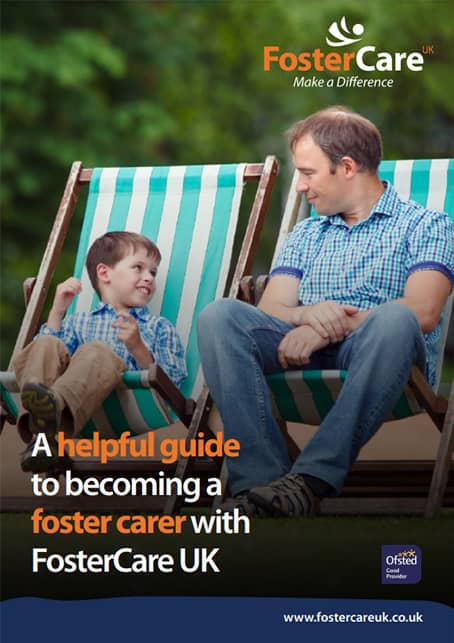


What happens when a child is taken into care?
Benefits of being a foster parent
What is a care leaver?
How to become a foster parent
How to foster a child
What are the foster care requirements
Can I choose who I foster?
Fostering with pets FAQ
How long does it take to become a foster parent?
What is the role of an independent fostering agency?
Fostering a disabled child
Tips for coping when foster placements end
Do foster carers pay tax?
What to expect in a fostering assessment
Common Fostering Challenges and Solutions
What disqualifies you from being a foster carer?
Muslim Fostering
Fostering as a single parent
Can you foster a child with a criminal record?
Can you work and foster?
Top 10 fostering myths
Can I foster if…?
Can I foster and rent?
LGBT Fostering: can I foster if I’m gay
Top transferable skills to become a foster carer
Can you foster with a mental health condition?
Christian Fostering
Sikh Fostering
Cultural Diversity in Foster Care
How to encourage foster children to read
Reasons for a child to be taken into care
Tips for coping with attachment disorders in Foster Children
Fostering vs Adoption
What happens when foster parents get divorced?
What is reunification in foster care?
How to deal with foster child bullying
A guide to the foster care handbook
Guide to fostering young children
Types of self-harm
A guide to fostering teenagers
What are the signs of depression in foster children?
Thinking of becoming a foster carer, but you have a disability? Or perhaps you’re wondering about fostering a disabled child? This guide provides detailed information on both of these matters – giving you an understanding of what should be required from you as a foster carer, and what needs the disabled child may have.
Fostering a disabled child is often thought of as an extremely rewarding experience for both carers and children. Whether they have learning difficulties, down syndrome or autism, here at FosterCare UK, you will receive an extensive level of fostering training and support – ensuring you are prepared as possible for any placement.
We pride ourselves on ensuring that our carers possess all the traits necessary for caring for a child – such as kindness, patience, understanding, compassion and a desire to change a young person’s life. These traits also extend to when you are fostering a child with a disability – and the team here at FosterCare UK will be with you every step of the way.
Do you have a disability, but you’re keen to change the lives of children and young people? Having a disability does not immediately hinder your ability to become a foster carer. We ensure to provide equal opportunities for everyone who wants to, and is able to, foster.
There are various fostering requirements that are primarily important to recognise – such as being over the age of 21, having a spare bedroom and being in good health. However, if you have a disability, we will work together with you to see what impact that might have on a child placed in your care.
If your disability is physical, this does not necessarily impact your ability to foster. Physical disabilities could include:
As long as you have the time and energy to help change a young person’s life without compromising on your own welfare or theirs, this should not limit your ability to foster children. This also applies if your disability is neurological, or you have a chronic illness – as long as you have the desire and the time to take care of the child, this should not impact your ability to foster.
It’s important to note that the welfare of the children is our utmost priority – so our team would work closely with you to begin your fostering journey, especially so when it comes to fostering children with a disability.
Disabled children or children who have learning difficulties may require additional support in various areas, such as ensuring the accessibility of your home is maintained at all times, or establishing a routine for children with autism, for example. That’s why we work so closely with our carers to define these routines, put practices into place and ensure both the child and the carer feel as comfortable as possible with the arrangement.
For more information about fostering a disabled child, or fostering with a disability yourself, get in touch with our friendly team now for more help and support.
If you’ve got any questions or would like to find out more about fostering with Capstone, fill out the form below.
An experienced fostering advisor from your local area will then be in touch.

Start the conversation today. Our team of friendly advisors are on hand to answer any foster care questions you may have. We can offer you honest and practical advice that can help you decide if becoming a foster carer is the right path for you.


